anima-, anim-
(Latin: animal life, a living creature; living; breath; soul; mind)
The Latin element, anima-, refers to “a living being” from a Latin form meaning, “of air, having a spirit, living”; which in turn comes from another form meaning, “breath of air, air, soul, life”.
Motto of Pensacola Jr. College, Pensacola, Florida, USA.
2. A very strong and hostile dislike or hatred for others or for one’s situation: Gertrude, a TV reporter, developed animosity for those in the audience who criticized her overweight condition.
3. Etymology: animosity originally meant "animation, spirit", as the fire of a horse, called in Latin equi animositas.
Its present exclusive use in a "bad sense" is an instance of the tendency by which words originally neutral have come to assume a bad meaning.

Here is an extreme example of animosity with elements of animalistic psychosis.
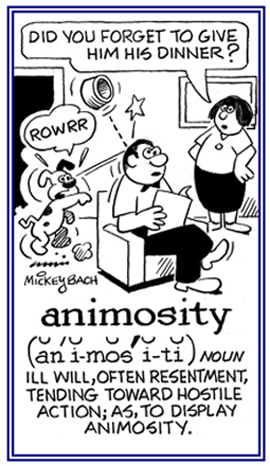
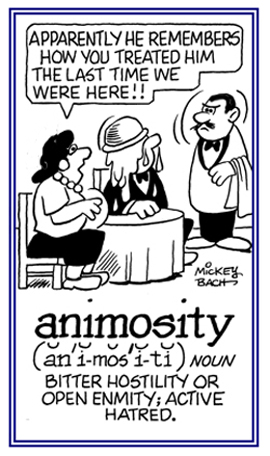
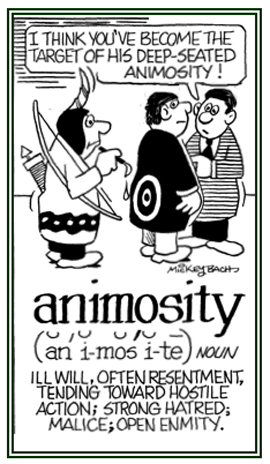
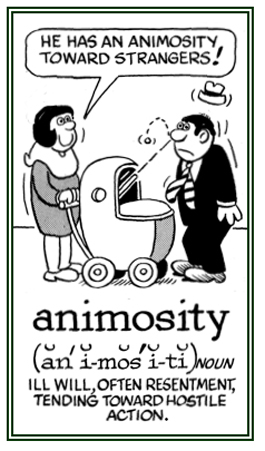
Go to this Word A Day Revisited Index
so you can see more of Mickey Bach's cartoons.
Gerald was satisfied with his first year on the job; however, after he was moved to a new department, he developed a real animus towards his supervisor.
2. An attitude, basic impulse, or feeling that motivates a person’s actions: Roy had an animus that persisted as he strived to pursue his vocational objectives.Although animus still contains some of the original idea of the soul as a driving force, the more common interpretation is usually the sense of ill-will or dislike.
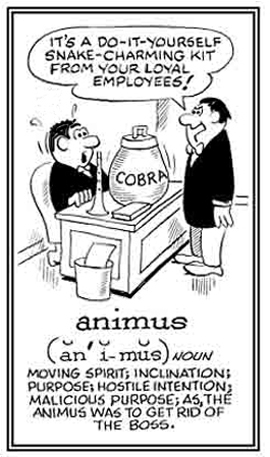
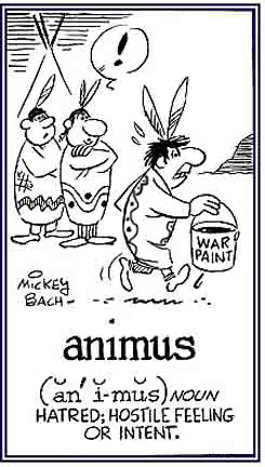
Go to this Word A Day Revisited Index
for a list of additional Mickey Bach illustrations.
Wildlife habitats are classified as either aquatic (water), terrestrial (land), or amphibious (water and land).
2. To divest of spirit, courage, or vigor: After Greg’s mother passed away, the experience of losing her disanimated him completely to such a degree that he couldn’t go back to work for a long time.
3. To discourage, to dispirit, to dishearten: The ordeal of getting a bad grade on his English test in school disanimated Albert so much that he stayed in his room and wouldn't talk to anybody the whole day!
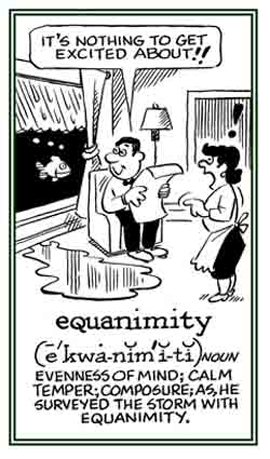

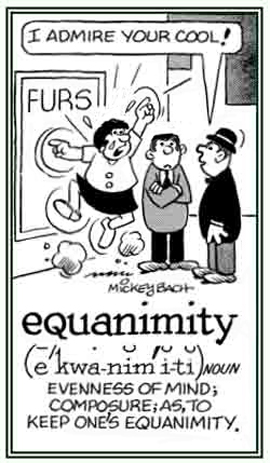
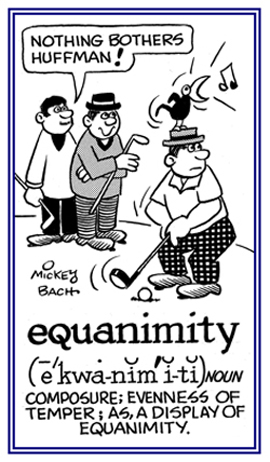
Go to this Word A Day Revisited Index
for a list of additional Mickey Bach illustrations.
2. Relating to being calm and in control of the emotions; primarily in a difficult situation: Jane was quite equanimous, or self-possessed, when being told by the authorities that she had violated the law by parking in the hospital driveway; especially, since it wasn't her car!
2. A steady temper: Ted was known for his equanimousness, or composure, while talking with his children after they had committed some misbehavior at school.
3. A condition of not being easily overjoyed nor depressed: Shirley was quite poised and showed a lot of equanimousness when she was visiting her relatives, whom she was not well acquainted with and didn’t see very often.
2. Pertaining to the deprivation of spirits; disheartened; discouraged: After failing her driver’s license test, Lynn was so exanimate that she couldn’t eat her dinner that evening.

Go to this Word A Day Revisited Index
so you can see more of Mickey Bach's cartoons.
2. A cause of breathlessness or unconsciousness: When Ginny was very young, she fell off the swing seat at her home and her exanimation was present for a few seconds because she could hardly breathe!
3. A loss of spirits, a disheartening or depression: After George’s death, his family was filled with exanimation, feeling so very depressed and not being able to do the regular everyday activities which they usually did.
2. A reference to existing in a natural situation, as animals or plants: Such feral elements of nature are not domesticated or cultivated.
3. Characteristic of wild animals that are sometimes ferocious after returning to the wild following a period of mutual relationship with humans: Jill's neighbor saw a group of feral dogs, which once lived with her, roaming in the forests when he went hunting.
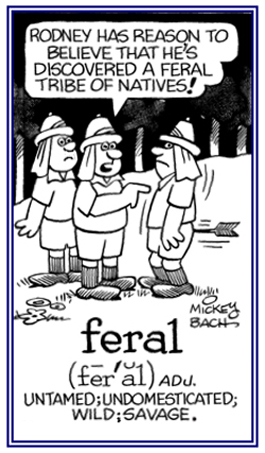
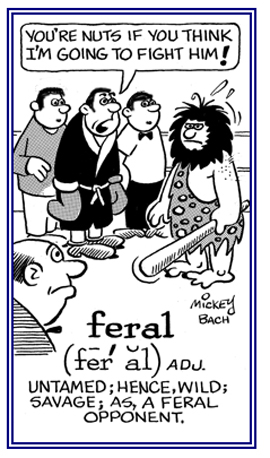
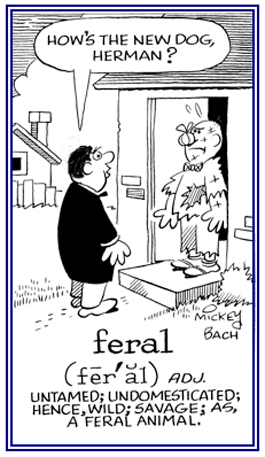
Go to this Word A Day Revisited Index
so you can see more of Mickey Bach's cartoons.
Although the term feral is not from the anima-, anim- origin, it does come from Latin fera, "wild animal, wild beast"; from ferus, "wild".
2. Descriptive of being without the activity or motion of life; spiritless, inactive: Teresa's little baby seemed to be almost inanimate when he was sleeping and breathing so peacefully.



